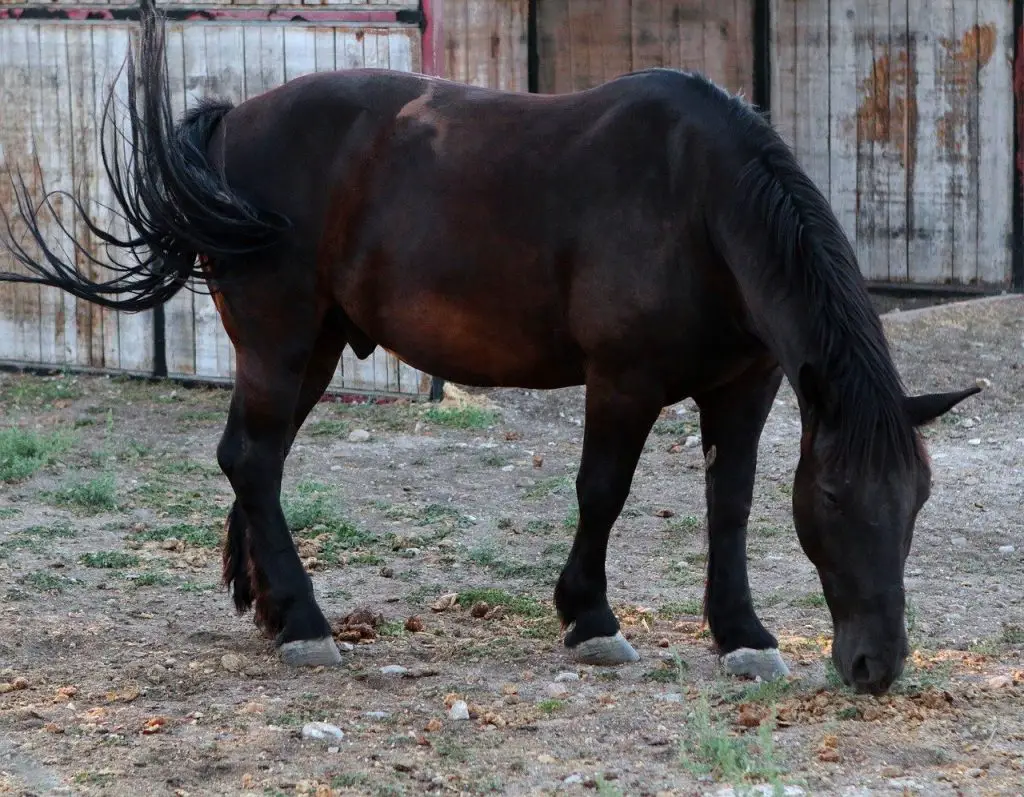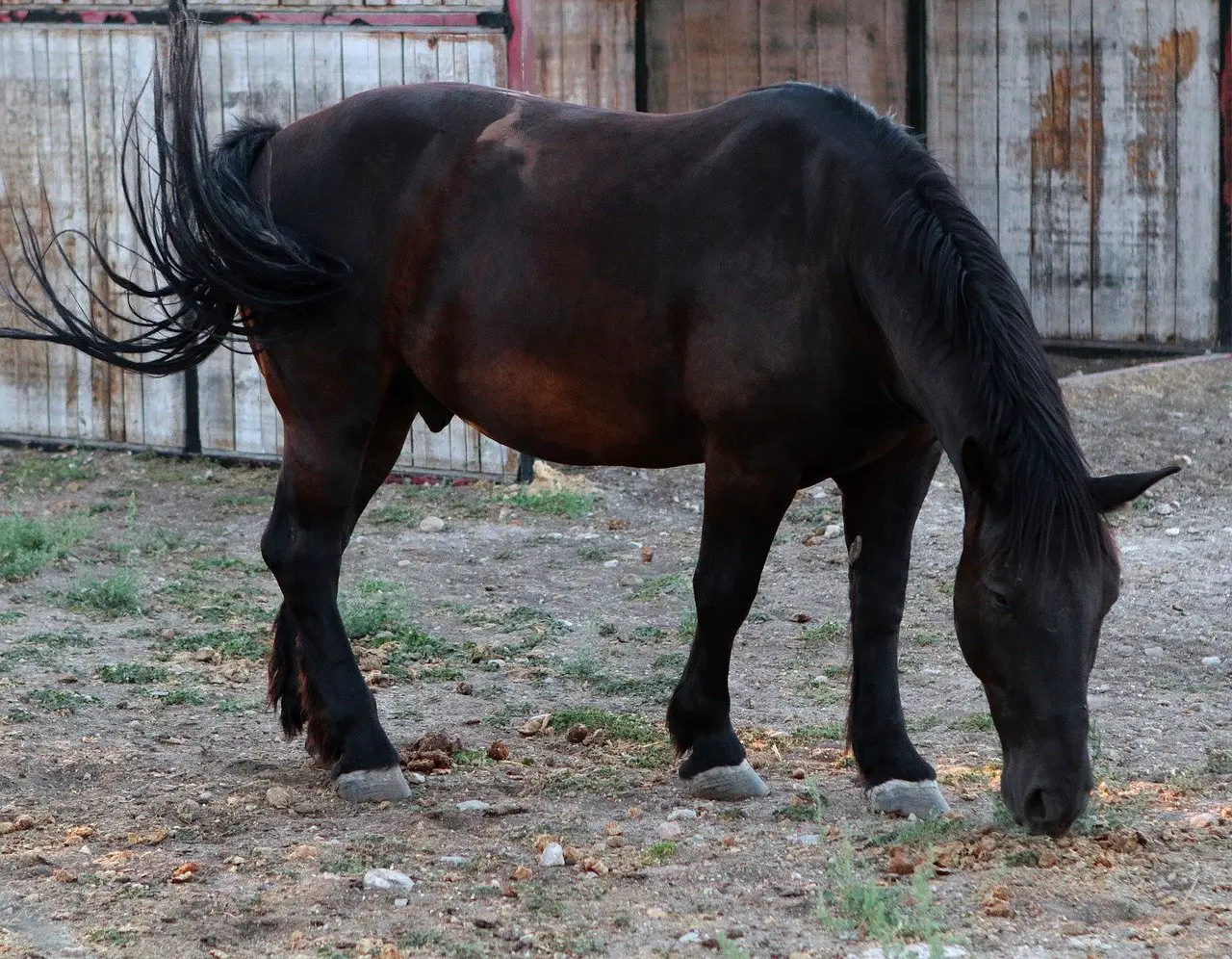Last Updated on February 22, 2022 by Allison Price
Although sheath cleaning may not be the most pleasant thing to do, it is an essential part of a male horse’s health care. Mares can also be affected by ‘beans.
Kat Seeman, founder of Southern Equine Sheath Cleaning, has over 30 years experience with horses. She was also trained in sheath cleaning by an equine veterinarian.
What is a bean?
A bean is a hard, clumping mass of skin cells, fat cells and urine. It collects at the horse’s penis tip, in a small pouch just above the urethra, the horse’s urinary tract.

What are the signs of a male horse having one.
You should look for signs that your horse may have one.
- A swollen sheath
- Tail rubbing
- Kicking up at your sheath
- When riding, bucking
- Feeling “stuffy” from the inside
- Behavior changes
Why is sheath clean
Sheath cleaning has many benefits:
- To remove hard and sharp smegma from horses.
- For safe extraction, and to check for ‘beans’
- This is a chance to perform a health check on the sheath, penis, and make sure that there aren’t any abnormalities like penile cancers. This is especially important in summer when horses are more at risk for getting fly strike (maggots).
How often should this be done?
We recommend sheath cleaning be performed only once or twice per year.
What are the downsides to this?
Sheath cleaning can have negative side effects if done too often, which can lead to low good bacteria levels and soreness. I have seen people clean their sheaths weekly. I wouldn’t recommend it unless they are under veterinary guidance.
Is it safe to clean your horse yourself?
Owners can clean their horses as long as they feel comfortable, especially if the horse is difficult.
What is the cleaning process?
To soften, loosen, and begin to remove any smegma or dried skin from the penis we use either a mild soap of a water-based oil lubricant. If the horse was carrying a bean, we would have found it and removed it.
The sheath is then rinsed with warm, clean water.
To remove any remaining residue, we finally flush the sheath.
What if my horse isn’t interested in being touched?
For horses who are uncomfortable being touched, my advice is to use grooming sessions to desensitize them.
As usual, groom the horse. Gently brush the sheath and between the hind legs as you go. This is not a major issue. Don’t rush to get the sheath.
Gradually, you will be able to spend more time there. Your horse becomes more comfortable with it.
What happens to horses whose sheaths are not cleaned?
Some horses are able to go through their lives without any sheaths and show no signs of discomfort. They compensate for the discomfort by showing their survival instinct. The weakest of horses would be eaten in the wild so they must prove they are strong.
Are beans able to affect mares?
Yes, mares can get beans too. These are found at the bottom of the mare’s vulva, between the creases. It is a good idea to clean the area between and around their teats regularly, getting rid of any hard, waxy buildup. You can also check for abnormalities. We humans check our bodies for lumps and bumps every day, so it is worth getting to know your female horse’s habits and how they behave.



